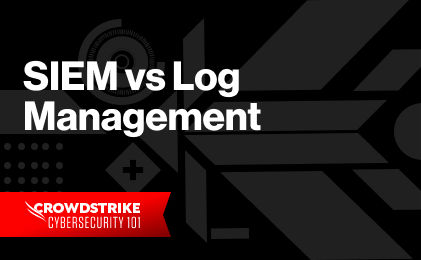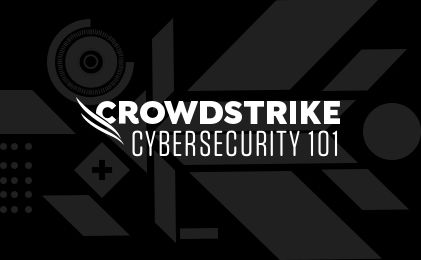Regulatory laws and standards exist to protect the data, privacy, and safety of end users. Some regulations are related to financial reporting and are meant to protect investors in publicly traded companies. These laws play a significant role in building user trust and improving your organization’s security posture. Though regulatory compliance should be a concern for all software companies, organizations working specifically in healthcare or finance often face more stringent regulations. Maintaining compliance can be a challenge, but organizations bear the burden of due diligence in a continuously evolving regulatory environment.
In this article, we’ll discuss regulatory compliance, exploring the challenges that organizations commonly encounter. We’ll also see how CrowdStrike provides clear guidance and tools to help companies achieve regulatory compliance.
What is regulatory compliance?
Regulatory compliance involves following the legal and regulatory requirements that apply to an organization's business operations and processes. It means ensuring that specific rules and standards are met within different business areas. In this way, every part of a company’s operations can comply with the laws and regulations of the relevant jurisdiction and industry.
Organizations have many motivations for attaining regulatory compliance. Compliance violations can lead to several consequences:
Revenue loss and fines
Lawsuits
Increased possibility of a security incident or data breach
Damaged business reputation
Loss of customer trust
Compliance helps an organization uphold high levels of privacy standards. Depending on an organization’s product or technology focus, achieving regulatory compliance may involve actions that include:
Implementing data protection measures
Storing internal data for auditing purposes
Allowing users to own, modify, or delete the data collected about them
Cybersecurity and regulatory compliance are intertwined. Security focuses on safeguarding systems from malicious actors, whereas compliance focuses on adherence to laws and standards. The relationship between compliance and security is significant because achieving specific regulatory standards requires implementing many security measures.
Key regulations and standards in cybersecurity
The technology sector has a vast regulatory landscape. Several regulations stand out and are well known across the industry.
Health Insurance Portability and Accountability Act (HIPAA)
HIPAA addresses the protection of sensitive medical and patient data in the United States. Organizations that transmit health information in electronic form or handle protected health information (PHI) are required to comply with HIPAA. This includes healthcare companies, health plan providers, and health services technology companies.
Payment Card Industry Data Security Standard (PCI DSS)
The PCI DSS standard establishes policies and procedures concerning credit card transactions to protect cardholder data and minimize fraud and identity theft. Achieving PCI DSS compliance requires adhering to 12 standards, including data encryption of cardholder information and restricting physical access to cardholder data. PCI DSS applies to any organization that stores, processes, or transmits cardholder data.
Federal Risk and Authorization Management Program (FedRAMP)
FedRAMP sets standards that public cloud providers must comply with to offer their services to the U.S. government. Cloud service providers who wish to be FedRAMP-certified must pass an independent security assessment conducted by a third-party organization, verifying compliance with the Federal Information Security Management Act (FISMA). This certification of compliance — along with compliance certifications for NIST or the GLBA — demonstrates that the service provider meets the highest standard of security required by the U.S. government.
Sarbanes-Oxley (SOX)
SOX is a law establishing requirements for financial reporting and auditing, and it aims to improve corporate transparency and protect investors from fraudulent accounting practices. Compliance with SOX is crucial for publicly traded companies, as it facilitates the accuracy and reliability of financial statements.
Being SOX compliant protects investors by enforcing internal controls and corporate governance measures to reduce the risk of financial misstatements. Compliance builds investor confidence by ensuring that companies provide truthful and transparent financial information.
General Data Protection Regulation (GDPR) and the California Consumer Privacy Act (CCPA)
The GDPR is the European Union’s data privacy law, and it took effect in 2018. The GDPR protects the data of EU residents, which means that even organizations outside of the EU — so long as they serve residents of the EU — must also adhere to GDPR requirements. In addition to various data protection measures, companies must comply with requests from EU resident users to make updates to or completely delete personal data.
Similarly, the CCPA protects the data and privacy rights of California consumers. Organizations handling the data of California consumers must disclose what personal information they collect and give consumers the right to delete this data.
Cybersecurity Checklist for Small Business
Download this guide, which covers essential areas to fortify your business against cyber threats, including access control, data protection, employee training and more.
Download NowBenefits of regulatory compliance
Achieving regulatory compliance is not just about avoiding expensive fines and penalties, although that is clearly one of the main motivators. It’s also a way of building trust and demonstrating that an organization is responsible, competent, and capable of safekeeping its users' data and privacy.
Data privacy is increasingly seen as a human right. Companies that do not demonstrate a concern for privacy regulations risk reputational damage. In the long term, this is often more costly than any fine.
Regulatory compliance also helps improve your organization's security posture, as many regulations enforce data encryption and access control policies.
Challenges in achieving regulatory compliance
Achieving regulatory compliance can be a complex and demanding journey. You may need to navigate a maze of laws and regulations, and those regulations are often evolving. In addition, they can vary significantly across different regions and industries, requiring extensive work from both technical and legal staff to bring clarity. You may need to hire experts or seek services from a third party, and this can be resource-intensive and expensive.
On top of this, the actual implementation to achieve compliance can also be costly. Some regulations may have demanding technical requirements, such as the need to store large amounts of data for many years or capture detailed audit logs across all components of the system. For many startups and pre-revenue companies, this can be an overwhelming endeavor.
How CrowdStrike helps with regulatory compliance
Regulatory compliance is a crucial aspect of modern business operations, but the path to full compliance can be demanding and expensive.
CrowdStrike Falcon® Next-Gen SIEM helps organizations demonstrate regulatory compliance through cost-effective long-term data retention and customizable dashboards. Whether you need help with general data privacy compliance or more specific medical data protection, CrowdStrike’s tools are designed to assist organizations in satisfying a wide range of regulatory standards. For example, the CrowdStrike Falcon® platform supports fintech companies with PCI DSS compliance by tracking and monitoring all network resources and cardholder data accesses.
The Falcon platform is recognized as FedRAMP authorized, meaning it has met the strict security standards mandated by the FedRAMP program. This certification ensures that the Falcon platform meets rigorous data protection and security standards, making it a trusted solution for U.S. government agencies. Apart from FedRAMP, the Falcon platform has several other compliance certifications and is one of only 12 organizations with the NSA-CIRA certification.
CTA box on Falcon Data Protection
“In addition to Falcon Next-Gen SIEM, CrowdStrike Falcon® Data Protection takes a modern approach to stopping unauthorized PCI egresses in real time. See how easy it is to effectively stop PCI data loss and sensitive data from leaking into web-based generative AI tools like ChatGPT. “
Learn More About Falcon Data Protection







